AI Plugins in Visual Studio Code for Mobile Development
Learn how GitHub Copilot and other AI plugins in VS Code are making mobile development intuitive and efficient.

Remember the days when we'd spend hours debugging a single line of code? Or when we'd rack our brains trying to remember that one specific syntax? Well, those days are fading into the rearview mirror, thanks to the AI revolution that's sweeping through our beloved VS Code.
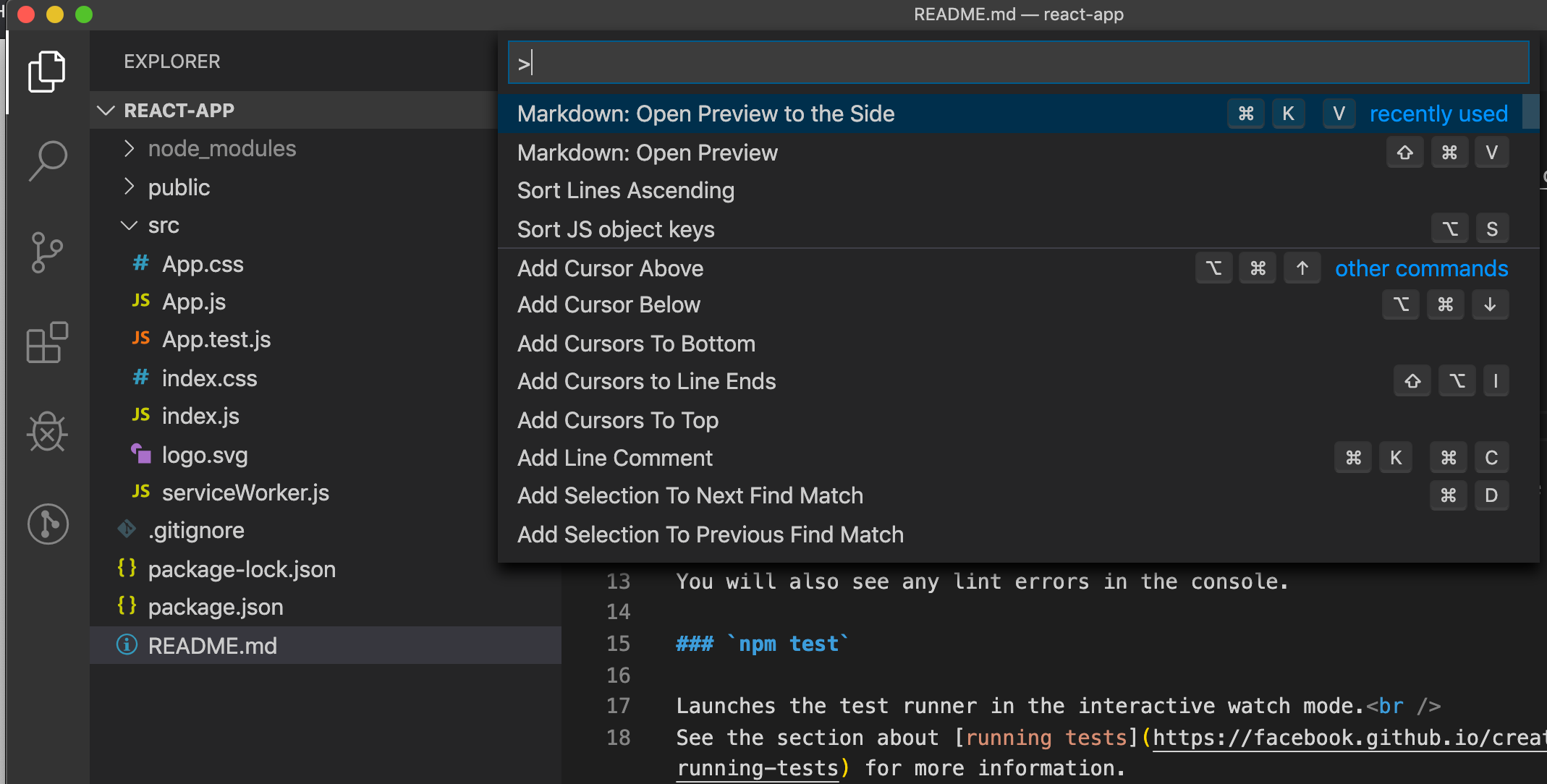
The AI Toolkit
Let's kick things off with a bang. The AI Toolkit for Visual Studio Code is not just another extension. It's your new coding buddy, your digital rubber duck, and your personal code whisperer all rolled into one.
This powerhouse of an extension is designed to help developers and AI engineers build AI apps with ease. Whether you're working with generative AI models locally or in the cloud, this toolkit has got your back. It's like having a seasoned developer looking over your shoulder, offering suggestions and catching mistakes before they become headaches.
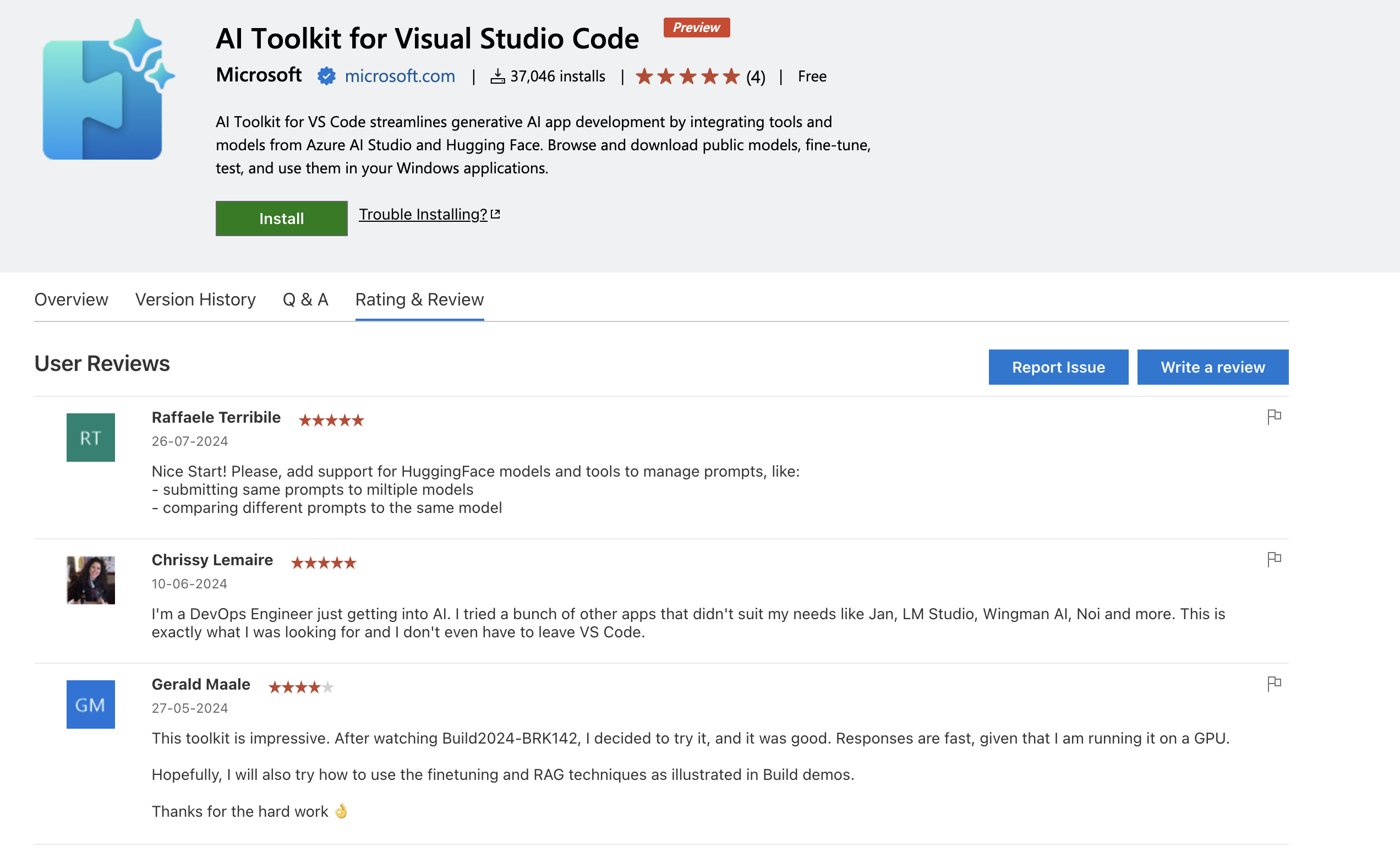
But here's the kicker: it's not just for the AI wizards among us. Even if you're just dipping your toes into the AI waters, this toolkit can help you level up your mobile development game. It's intuitive, powerful, and, best of all, it works on Windows, Mac, and Linux. No one's left out of this party.
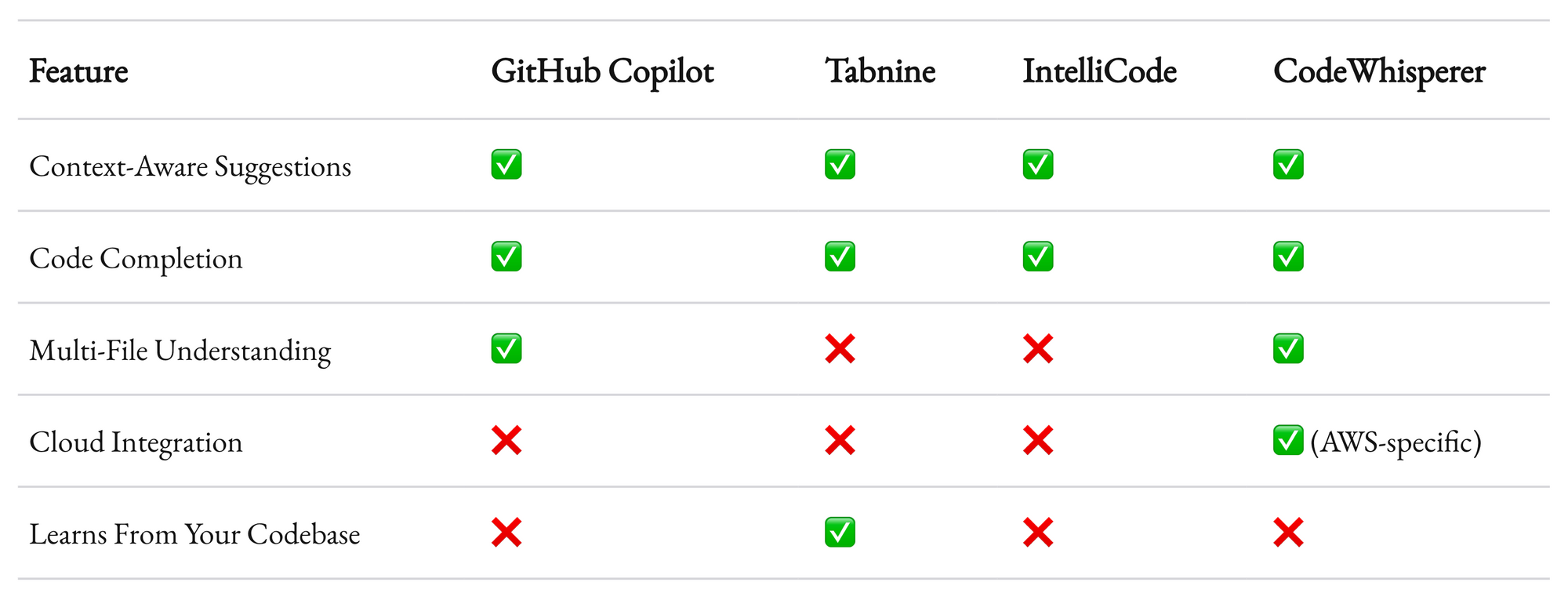
GitHub Copilot
Now, let's talk about the elephant in the room – GitHub Copilot. This isn't just an AI tool; it's a revolution in how we write code.
Imagine having a pair programmer who never gets tired, never needs coffee breaks, and is always up-to-date with the latest coding practices. That's GitHub Copilot for you. It's like having a coding superpower at your fingertips.
Here's what makes Copilot a game-changer for mobile development:
- Code Suggestions on Steroids: As you type, Copilot analyzes your code and offers suggestions. It's not just autocomplete; it's auto-awesome.
- Multi-File Mastery: Making large changes across multiple files? Copilot's got you covered. It understands context across your entire project.
- Your Personal Code Tutor: Stuck on a problem? Ask Copilot. It can explain code, suggest improvements, and even help with debugging.
- Test Generation: Writing tests is often the least favorite part of coding. Copilot can help generate and configure tests, making this crucial task less of a chore.
- Documentation Made Easy: Copilot can help generate code documentation, ensuring your future self (and your teammates) will thank you later.
But here's the real kicker: Copilot adapts to your coding style. The more you use it, the better it gets at predicting what you want to write. It's like having a mind-reading assistant who gets smarter every day.
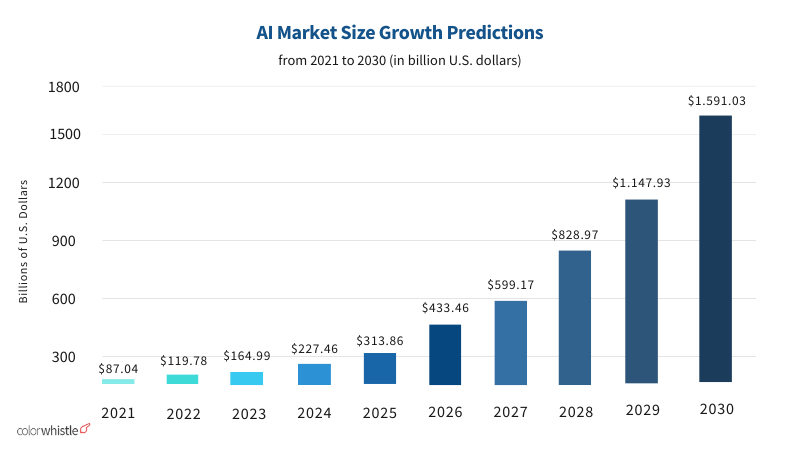
The AI App Market
Now, let's zoom out for a moment and look at the bigger picture. The AI app market is booming, and it's creating unprecedented opportunities for mobile developers.
In the first eight months of 2024, global in-app purchase revenue for AI and chatbot apps hit a staggering $580 million. That's more than 1.5 times the total for all of 2023. We're not just talking about growth; we're talking about exponential explosion.
Here's a quick breakdown of the market:

What does this mean for you as a mobile developer? It means opportunity. Big, fat, juicy opportunity. The demand for AI-powered mobile apps is skyrocketing, and with tools like the AI Toolkit and GitHub Copilot at your disposal, you're in prime position to ride this wave.

Improving User Experience with AI
Let's get down to brass tacks. How exactly is AI transforming mobile app development? It's all about the user experience.

AI and machine learning are personalizing user experiences in ways we could only dream of a few years ago. They're analyzing user behavior, predicting needs, and tailoring content in real-time. It's like having a psychic app that knows what the user wants before they do.
Here's how AI is elevating mobile app UX:
- Hyper-Personalization: AI algorithms analyze user data to create truly personalized experiences. Your app can adapt its interface, content, and functionality based on individual user preferences and behavior patterns.
- Predictive Features: AI can anticipate user needs and offer proactive suggestions. Think of it as the digital equivalent of a butler who knows exactly what you need and when you need it.
- Smart Automation: Routine tasks can be automated, freeing users to focus on more important things. From smart email categorization to automated scheduling, AI is making apps more efficient and user-friendly.
- Enhanced Search Capabilities: AI-powered search understands context and intent, delivering more accurate and relevant results. It's like having a mind-reading search function.
- Emotion Recognition: Some cutting-edge AI can even recognize user emotions through facial expressions or voice tone, allowing apps to respond with empathy and appropriate content.
By applying these AI capabilities in your mobile apps, you're not just building software; you're crafting experiences that feel almost magical to users.
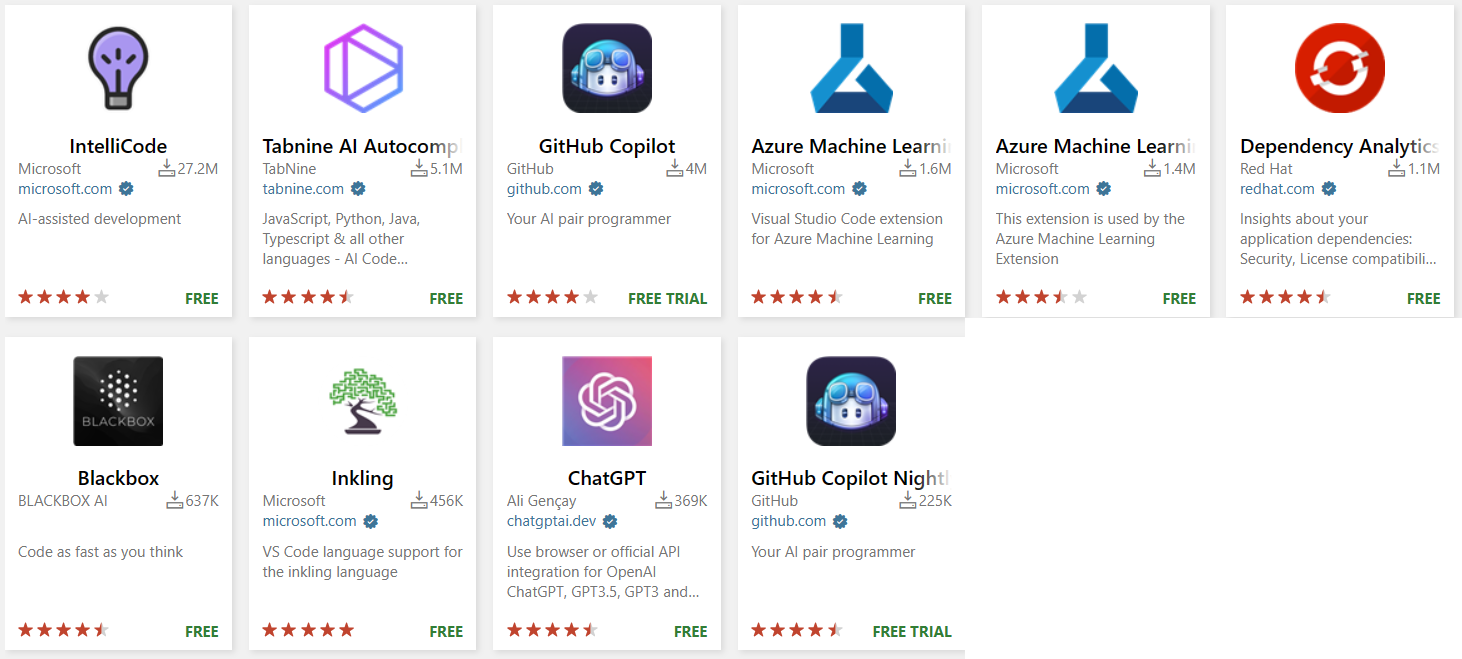
The Top AI Extensions for VS Code
Alright, let's get practical. What are the must-have AI extensions for VS Code when you're diving into mobile development? Here's my curated list, based on the latest data and my personal experience:
- IntelliCode: With over 27 million installs, this Microsoft-built extension is a no-brainer. It's like IntelliSense on steroids, offering context-aware code completions that learn from thousands of open-source repos.
- Tabnine AI: This AI assistant offers code completions for multiple programming languages. It's particularly useful for mobile developers working across different platforms.
- GitLens: While not strictly an AI tool, its AI-powered features for Git integration are a game-changer for team-based mobile development.
- AI-assisted Coding: This extension uses OpenAI's GPT model to provide code suggestions and explanations. It's like having a senior developer always ready to help.
- Kite: Kite's AI-powered code completions are especially useful for Python developers working on backend services for mobile apps.
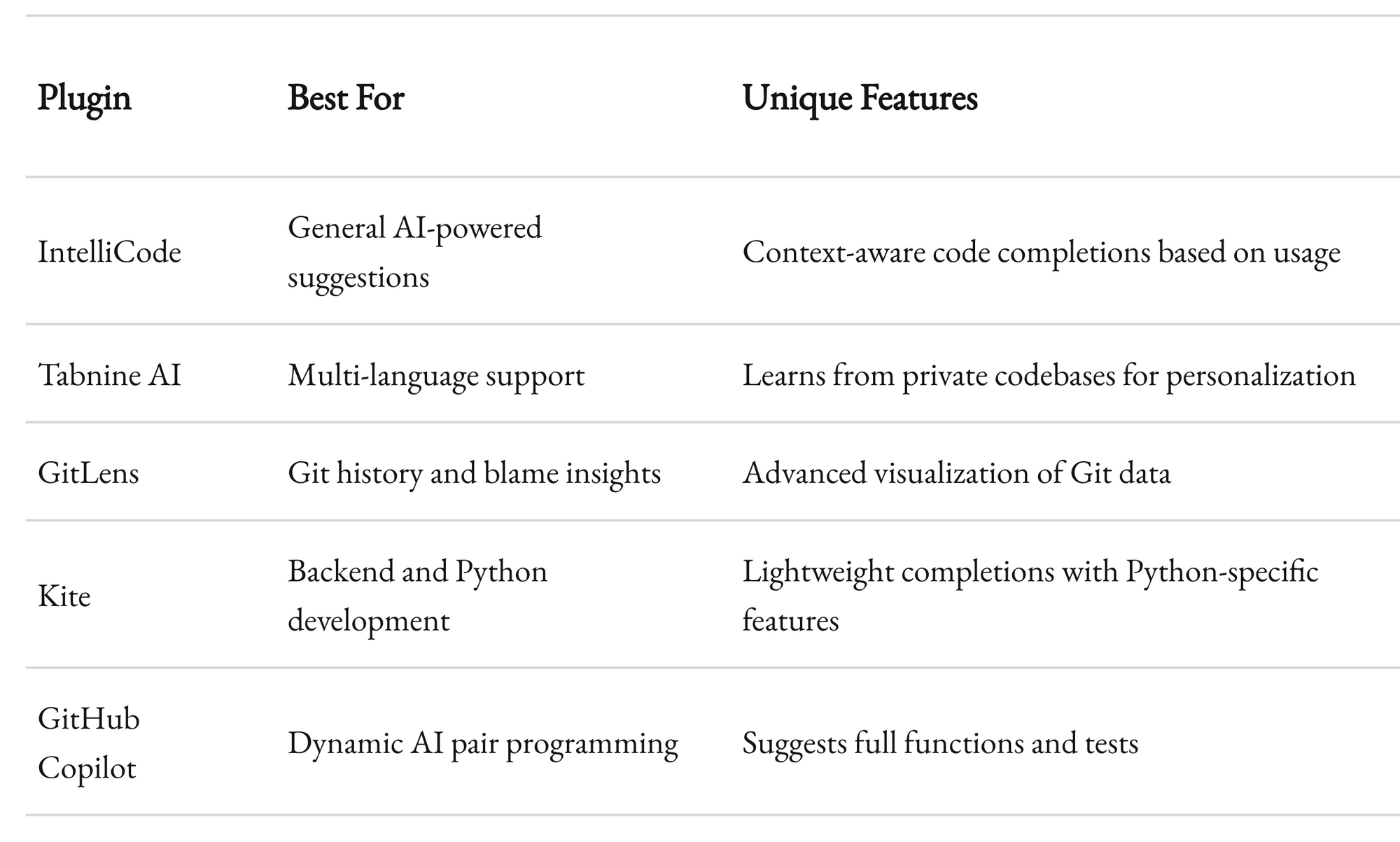
Remember, the key is to find the right balance of extensions that enhance your workflow without cluttering your environment. Start with one or two, get comfortable, and then expand your AI-powered toolkit as needed.
Overcoming the Challenges
“This all sounds great, but what about the challenges?” You're right to ask. Integrating AI into mobile apps isn't all sunshine and rainbows. There are hurdles to overcome, but with the right approach, they're far from insurmountable.
Let's break down the main challenges and how to tackle them:
- Data Privacy and Security: AI models often require large amounts of data to function effectively. This can raise concerns about user privacy and data security.
- Solution: Implement robust data encryption, use federated learning techniques where possible, and be transparent with users about data usage.
- Resource Constraints: Mobile devices have limited processing power and battery life compared to desktop systems.
- Solution: Use edge computing for on-device AI processing, and optimize your AI models for mobile environments.
- Integration Complexity: Incorporating AI into existing mobile app architectures can be complex and time-consuming.
- Solution: Start with small, focused AI features and gradually expand. Use AI development frameworks specifically designed for mobile environments.
- Maintaining Model Accuracy: AI models can degrade over time if not properly maintained.
- Solution: Implement continuous learning systems and regular model updates. Monitor model performance and retrain as necessary.
- User Trust and Adoption: Some users may be skeptical of AI-powered features or find them intrusive.
- Solution: Provide clear explanations of AI features, their benefits, and how they work. Give users control over AI-powered functionalities.
By addressing these challenges head-on, you can create AI-powered mobile apps that are not only innovative but also reliable, secure, and user-friendly.

What's Next?
As we wrap up this deep dive into AI plugins for VS Code in mobile development, let's take a moment to gaze into our crystal ball. What does the future hold for AI in mobile app development?
First off, we're going to see even deeper integration of AI into the development process itself. IDEs like VS Code will become smarter, offering not just code completion, but entire architecture suggestions based on your project requirements.
Natural Language Programming (NLP) is also set to revolutionize how we write code. Imagine describing your app's functionality in plain English, and having AI generate the basic code structure for you. It's not science fiction; it's just around the corner.
We're also likely to see a rise in AI-powered testing and quality assurance tools. These will not only catch bugs more efficiently but predict potential issues before they even arise.
On the app functionality front, expect to see more sophisticated AI models that can run efficiently on mobile devices. This will open up possibilities for advanced features like real-time language translation, complex image recognition, and even predictive health monitoring.
Lastly, AI will play a crucial role in app personalization. Future apps will adapt not just to user preferences, but to their current context, mood, and even physiological state. It's a brave new world of hyper-personalized mobile experiences.
As we close this chapter, let's take a moment to reflect. The integration of AI plugins in Visual Studio Code for mobile development isn't just a trend; it's a paradigm shift. It's changing how we write code, how we solve problems, and ultimately, how we create value for our users.
At 1985, we've seen technologies come and go. But AI? It's here to stay, and it's only getting started. As mobile developers, we have a front-row seat to this revolution. It's up to us to embrace these tools, to experiment, to push boundaries, and to create the next generation of mobile experiences.
Remember, the goal isn't to replace human creativity with AI, but to augment it. To use these powerful tools to free up our time and mental energy for the truly innovative, the truly human aspects of development.
So, fire up that VS Code, install some AI plugins, and start exploring. The future of mobile development is AI-powered, and it's bright indeed. Happy coding, and may your builds always be successful!



